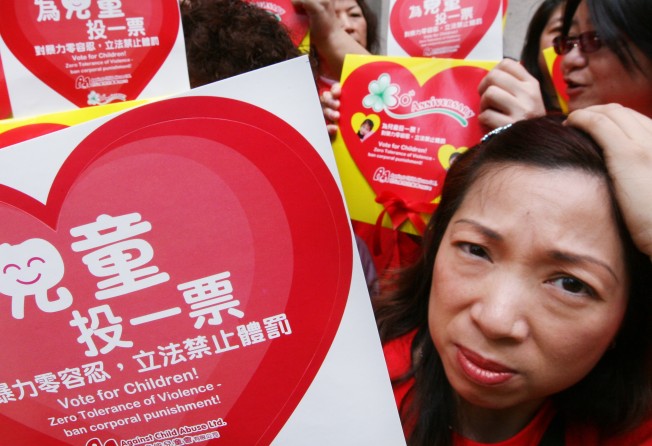It's time for Hong Kong parents to rethink corporal punishment

Parents take it for granted that they have the right to bring up their children however they see fit. This includes the use of corporal punishment when necessary. Such belief is particularly strong among the older generations of Chinese, for whom spanking and other forms of physical punishment were common place. But what used to be the norm may no longer be seen as acceptable today. Like adults, children have the same right not to be subject to physical abuse.
If a survey by a children's rights group is any guide, corporal punishment appears to be a common practice still. Up to 75 per cent of the children interviewed said they had been hit with hands, and objects such as hangers or rulers. Nearly 70 per cent said they received physical punishment occasionally, while 5 per cent were punished daily.
Parents may punish their children for various reasons. Unsatisfactory academic results and habits like spending too much time on video games are common ones. One mother said she would smack her daughter just because the child did not behave in a way she was expected to.
Such punishment may appear unwarranted to many. Yet most parents do not think twice when beating their children. As the survey showed, more than half of the parents polled realised that corporal punishment would worsen the parent-child relationship. But they claimed they could not think of a better way to discipline their children. The findings call for better education and support for parenting.
The old saying, "spare the rod and spoil the child", is increasingly questioned as more studies link physical punishment in the early stages of life to mood disorders and violence in adulthood. Even if it is an effective tool for discipline, it may cause long-lasting damage, physical or psychological. Corporal punishment is essentially a form of abuse. There have been calls for a total ban to better protect children. If such punishment at school is deemed unacceptable - it has been banned since 1991 - why would it be acceptable at home?